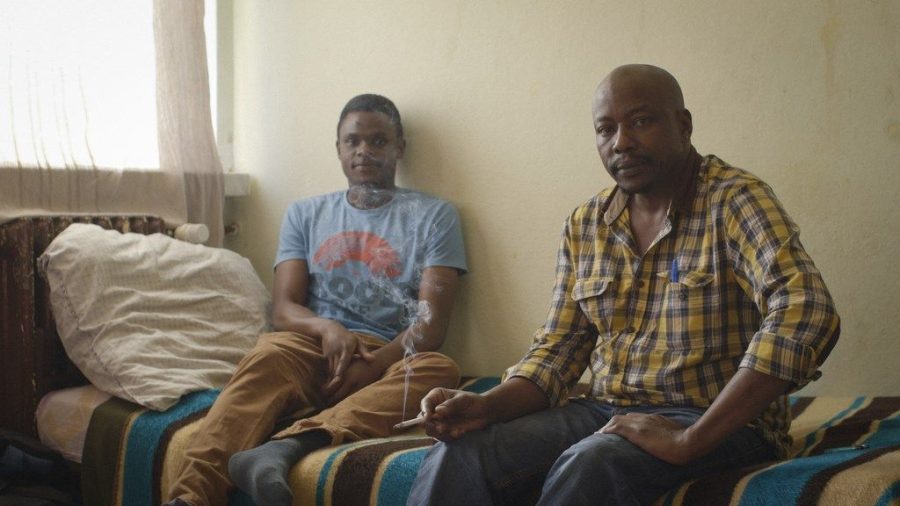In a country where the language and roads are as foreign to you as you are to the country, four asylum seekers navigate their time in a holding area for refugees in the documentary “The Invisibles.”
Released in 2014, “The Invisibles” is the latest work of German filmmaker Benjamin Kahlmeyer. The film was screened at the University of Massachusetts Boston on March 24, thanks to The UMass Boston Film Series, an ongoing initiative of the Chancellor’s Office. The film series offers a monthly screening of an acclaimed documentary from around the world.
“The Invisibles” follows four men—one from Syria, one from Cameroon, and two from Kenya—as they arrive and live out their time in a holding center of sorts while the German government processes their paperwork for asylum. The film takes place in Eisenhüttenstadt, a town in the state of Brandenburg, which borders Poland to the east and encompasses Berlin, Germany in the center.
The documentary is a cut-and-dry series of clips including the main characters and their everyday lives at the German center. Given no music, special effects, or voice-overs in the film, the viewer is allowed to feel the raw silence of reality as those who arrive at the center are processed and held until the verdict is made.
“We fled our homes because we had problems,” said one person.
“Where else can I go if I am not granted asylum? There is no ‘Plan B,’” said another. Realities like these hit the audience with no sugar-coating or filters.
The viewer gets a first-hand account of the tried and tired process of granting asylum. Complicated stories of fleeing countries for an assortment of reasons must be simplified for the sake of documentation.
After the film premiered, a Skype Q&A was conducted with Kahlmeyer (who stayed up until 3 a.m. in Berlin to chat) by Chico Colvard, curator and lecturer of the UMass Boston Film Series.
Many questions were brought up during the interview between Kahlmeyer and Colvard. Once the floor was opened to the audience, more technical questions began to spring forward. “Who is granted asylum and why?” asked one person. “What happens to rejected asylum seekers?” asked another.
One audience member, who was recently in Greece working with refugees, asked about the caseworkers handling the incoming refugees. “Do [the asylum caseworkers] care about the work they’re doing or is this just another job?”
Other questions, such as “Where do asylum seekers go for psycho-social care and assistance?” and “How are stories confirmed if they come from villages or destroyed cities?” kept Kahlmeyer busy until the end of the event.
For more information about the UMass Boston Film Series and upcoming screenings, please visit them on Facebook or at umb.edu/filmseries.
Film Review: “The Invisibles”
March 26, 2016
“The Invisibles,” a documentary about asylum seekers in Germany, previewed on campus on March 24 as part of the UMass Boston Film Series.





















































